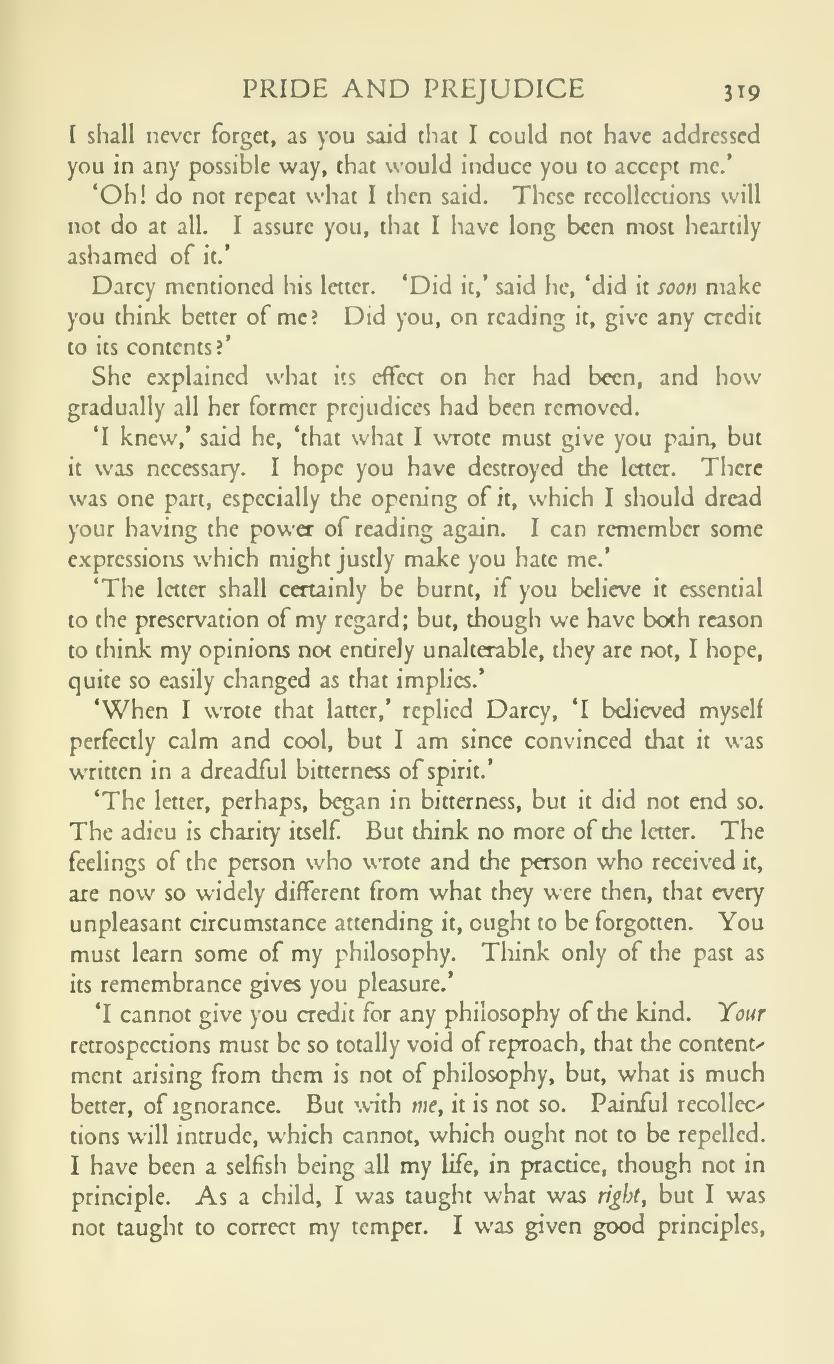 ............prev.....................next
............prev.....................next{{prxprp319.jpg}} || PRIDE AND PREJUDICE 319 ||
[ shall never forget, as you said that I could not have addressed
you in any possible way, that would induce you to accept me.'
'Oh! do not repeat what I then said. These recollections will
not do at all. I assure you, that I have long been most heartily
ashamed of it.'
Darcy mentioned his letter. 'Did it,' said he, 'did it soon make
you think better of me? Did you, on reading it, give any credit
to its contents?'
She explained what its effect on her had been, and how
gradually all her former prejudices had been removed.
'I knew,' said he, 'that what I wrote must give you pain, but
it was necessary. I hope you have destroyed the letter. There
was one part, especially the opening of it, which I should dread
your having the power of reading again. I can remember some
expressions which might justly make you hate me.'
'The later shall certainly be burnt, \{ you believe it essential
to the preservation of my regard; but, though we have both reason
to think my opinions not entirely unalterable, they are not, I hope,
quite so easily changed as that implies.'
'When I wrote that latter,' replied Darcy, 'I believed myself
perfectly calm and cool, but I am since convinced that it was
written in a dreadful bitterness of spirit.'
'The letter, perhaps, began in bitterness, but it did not end so.
The adieu is charity itself. But think no more of the letter. The
feelings of the person who wrote and the person who received it,
axe now so widely different from what they were then, that every
unpleasant circumstance attending it, ought to be forgotten. You
must learn some of my philosophy. Think only of the past as
its remembrance gives you pleasure.'
'I cannot give you credit for any philosophy of the kind. Your
retrospections must be so totally void of reproach, that the content'
ment arising from them is not of philosophy, but, what is much
better, of ignorance. But with me, it is not so. Painful recollect
tions will intrude, which cannot, which ought not to be repelled.
I have been a selfish being all my life, in practice, though not in
principle. As a child, I was taught what was right, but I was
not taught to correct my temper. I was given good principles,
[[319]]